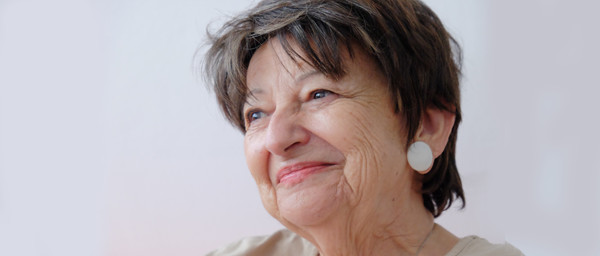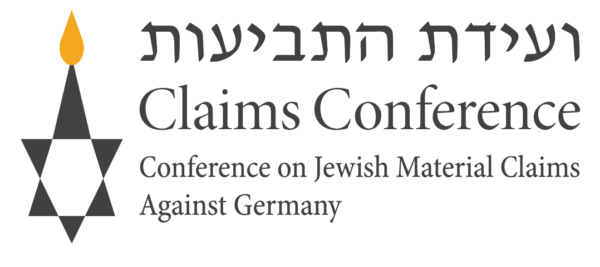Survivor Story: Ora Ninio

Ora, who receives a pension from the Article 2 fund, visits the Amcha day center in Jerusalem, which receives allocations from the Claims Conference. This is where she feels most comfortable and safe, Ora said. “Only here, in Amcha, I found a home. There is warmth here,” she says.
As a young child forced to hide from the Nazis in France, Ora Ninio of Jerusalem – then a little girl called Clair-Clara Ridnik – was told to keep quiet. Now, 70 years later, Ora still does not speak very much, even when she is with friends. But, Ora says, the bright spot in her life is the Claims Conference-funded Amcha day center in Jerusalem.
When the war began, Ora’s brothers and father enlisted in the French army; her brothers were killed at the front and her father was taken prisoner by the Nazis and sent to a POW camp in Germany. Ora’s mother took the little girl, just about to turn 5 years old, and fled to Lourdes in southwestern France.
Ora’s mother gave the girl a new name — Suzanne Gerard — and told her not to say a word until after the war. “That’s how I am until today, I don’t speak,” Ora says.
In Lourdes, her mother joined the French Resistance and smuggled people to the Spanish border. Every evening her mother had to look for places to hide Ora-Suzanne for the night. People would hide the child in attics, and she was forbidden to move or make a sound. One evening her mother took her to a French Resistance activity, where, together with a priest, she smuggled a group through the border. When they encountered German soldiers in the woods, the priest put Ora under his robe and prayed, saving her life.
Ora was sent to a monastery to keep her safe. But after a year and a half, she became very ill and her mother, who felt something was wrong, sent someone to bring the girl, weak and with lice, from the monastery back to Lourdes, where they lived until liberation.
When her father returned on May 8, 1945, the family made its way back to Paris, where they found that their apartment was taken by another family. At that point her mother had a breakdown and never recovered. “The war never ended for us,” Ora concludes sadly.
Ora, so ill during and after the war, dreamed of becoming a doctor. In 1951, she joined a cousin who was going to Israel. Ora studied for a year at Hadassah Nursing School in Tel Aviv, but had to leave her studies and return to Paris to take care of her brother, born after the war, since her mother was still traumatized by her war experience. “I had no childhood,” she said.
Ora returned to Israel in 1966, making aliyah with her husband and their two children. Her family now includes grandchildren and great-grandchildren.
Ora speaks quietly when discussing her childhood during wartime. “I have no past. I have nothing. I am a child who is in hiding to this day,” she says quietly. “This is the first time I feel comfortable speaking about the past. I never told anyone about it, not even my children.”
She still wears a silver bracelet given to her as a little girl by her mother, who hid it in a jam jar with a friendly farmer who had sheltered Ora during the war.
Ora, who receives a pension from the Article 2 Fund, visits the Amcha day center in Jerusalem, which receives allocations from the Claims Conference. This is where she feels most comfortable and safe, Ora said. “Only here, in Amcha, I found a home. There is warmth here,” she says.

